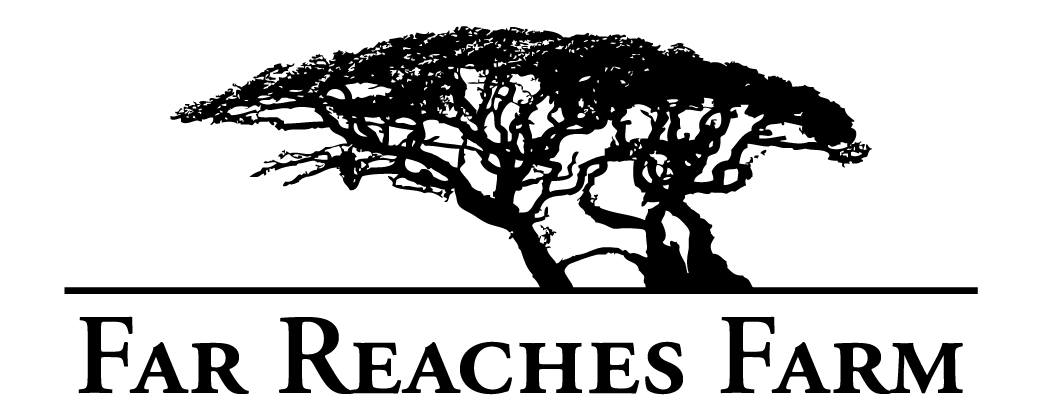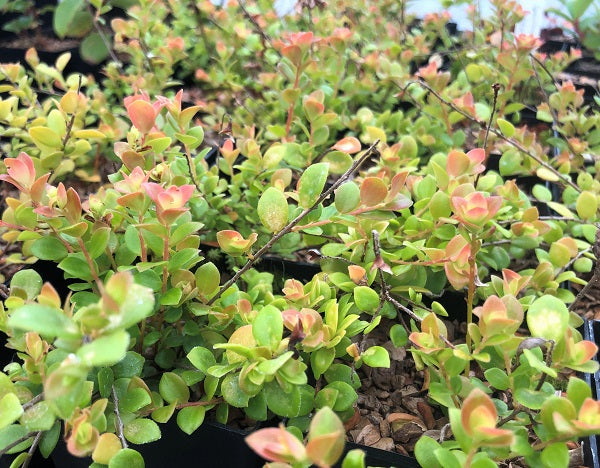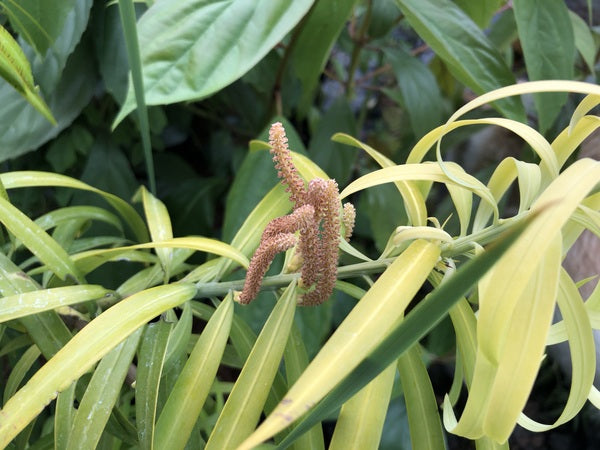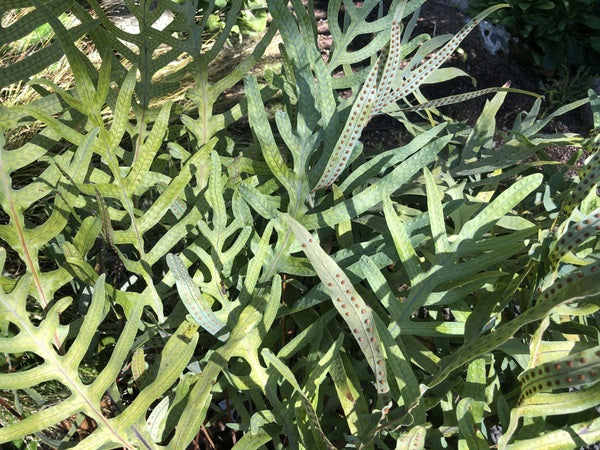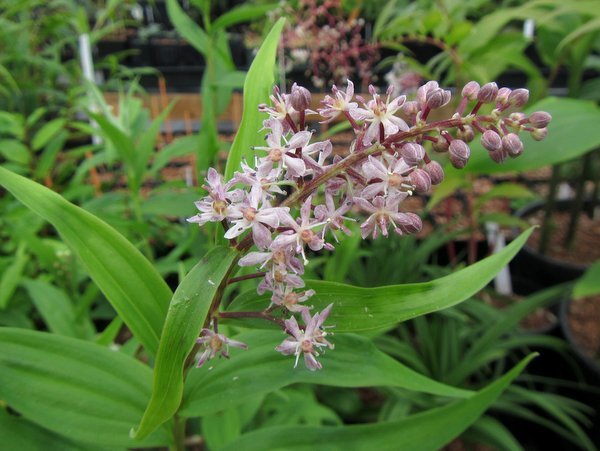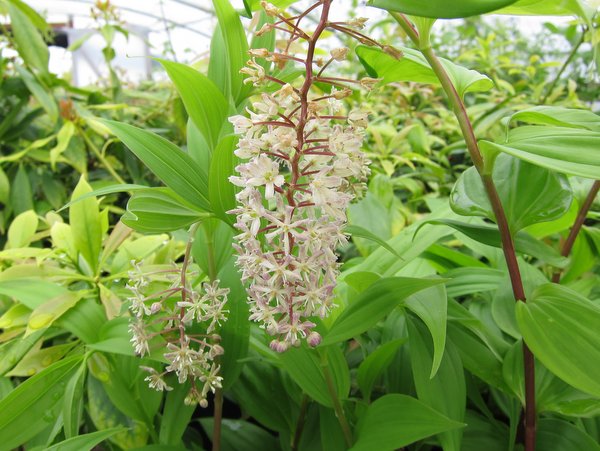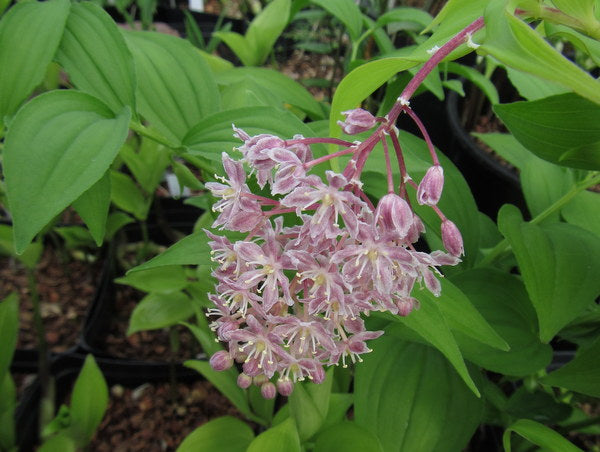Sort by:
8 products
8 products
From the cloud forests of Panama and South America where it grows on trees in accumulations of decomposed debris in crotches. Finally, an upside to crotch debris! Essentially a neotropical blueberry, this had been placed in Vaccinium a time or two. Small white to pinkish flowers with similar colored edible fruit. Frost sensitive, great plant where that is not concern. Otherwise, this will be a fantastic hanging basket that can be overwintered in sunroom or greenhouse.
Formerly in the genus Cheilanthes, this dryland fern is found in Mexico, Central America and Argentina and just recently, one site in Brazil. Evergraygreen fronds of fine texture are densely vertical on this smaller fern. Perfect candidate for the rock garden or container for milder gardens - doing well at Berkeley Botanic Garden for example. Thanks to the Fern Madam Judith Jones of Fancy Fronds Nursery for sharing spore.
A hardier form of this species than is currently found in the trade, this is one of the many notable wild collections at the former Peckerwood Garden, now the John Fairey Garden. Awesome blue-green foliage to 3' with hairy surface rhizomes. This will work as a houseplant but if you can grow it outside, why not? Grow in airy well-drained soil and mulch in cold winters.
A False Solomon Seal collected by the good folks at Crug Farm Nursery during a plant hunting trip to Central America. They found this once common species in Guatemala relegated to remnant populations at higher altitudes above 9000 feet where it found it spread rhizomatously to form small colonies. This decline of a species is a common situation particularly in lesser developed countries where human subsistence takes priority over species preservation. We can thank plant hunters for their efforts in preserving and conserving plants through cultivation. White flowers on stems to 18" and the rhizome is best mulched well to prevent frost from penetrating in winter.
Guatemalan False Solomon Seal. A collection by Port Townsend's own Josh McCullough from Volcan Azul in Guatemala at around 10,000'. This grows both in the trees as an epiphyte and on the forest floor as a geophyte. Fab narrow pleated leaves with terminal drooping panicles of flowers backed in lavender-pink with pale faces followed by shiny red berries. The flowers pictured is the first small bloom on these plants and we expect a better effort once they gain more maturity and practice. I know Sue expects a better effort from me at times but I'm straying into too much information again. A very rare plant in cultivation and regrettably likely best in Zone 9 but it is completely untrialed. This is a genus we are passionate about.
Progeny from a San Francisco Botanical Garden introduction from high elevation in Guatemala. High there still means frost sensitive but what a showoff in zones 9&10! Mass red flowers summer into winter with the lower three petals contrasting apricot. Evergreen shrub to 5-'6'+ tall and as wide. Ours in pots feed the overwintering greenhouse hummers.
Guatemalan False Solomon Seal. A collection from Guatemala at 8000'-9000' on Volcan Azul by Josh McCullough where he found this growing both epiphytically on Oak trees and terrestrially. Cool New World False Solomon's Seal that is best brought in during the winter unless you are Zone 9. This makes an interesting lignotuber of sorts at the soil surface which is a big swollen storage organ that is often found in epiphytes (tree dwellers) to help them weather periods of dry as well as uncommon cold snaps. Ahh, the adaptations of plants! We haven't flowered it but this has long 10" pedicels according to Josh's notes.
